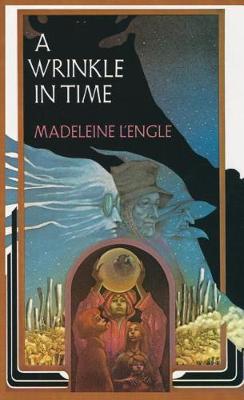Reviewed by celinenyx on
Tesseracting? Awesome! Jumping from one world to another and meeting non-human creatures is fantastic. I even liked the tiny bit where they go to a two-dimensional world, a nice nod to Flatland. I didn't care however for Meg as a main character. To be clear here, I like her spunk. I like how she pushes against people, but I still felt that her characterization was flat and she was not allowed to be her awesome self within the plot. Charles Whatever was horribly annoying and I did not understand Meg's unconditional love for her baby brother at all. Worse, the climax of the book completely revolves around Meg "loving" her brother, in an awfully contrived and illogical situation (why are the Mrs W's suddenly so commanding? why is it too dangerous now while it wasn't before?). It all read horribly Hallmark, and not even in the nice comfortable-cozy kind of way.
A Wrinkle in Time, to me, was like being force-fed a love-conquers-all-evil ideology with continuous references to God, Jesus, and more God; the bits of Einstein sprinkled in really didn't do much to rescue it.
Also, saying that it's a children's book doesn't excuse its black and white morality - plenty of children's books deal with good and evil in a wonderfully subtle way. Nor is it "simply a book of its time". Within all time periods authors have resisted dichotomous explanations; L'Engle was not one of them.
Reading updates
- Started reading
- 15 May, 2018: Finished reading
- 15 May, 2018: Reviewed
